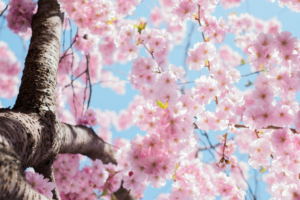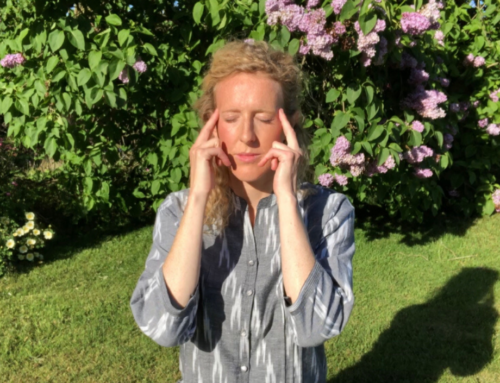
After a few false starts, it seems that spring has finally sprung. The birds are singing; the sun is shining… and the pollen is out! For some, this time of year can be a nightmare of runny noses and streaming eyes as Hay fever really begins to kick in.
Hay fever, or allergic rhinitis, is characterised by symptoms such as a runny nose, itchy or watery eyes, incessant sneezing and an irritation in the throat, nose and and eyes. Some experience more symptoms than others, but everyone affected by it agrees that it really can take the joy out of this time of year.
Most people will attempt to treat hay fever and allergies with antihistamines – and for some, these work really well. For others though, it’s a constant search for an antihistamine that works without making them drowsy and foggy-headed.
The good news is that there are other treatments available. I have successfully used acupuncture to treat many clients suffering with hay fever, and many now prefer this to antihistamines. Acupuncture is actually a safe and effective treatment for many types of other allergies too where antihistamines are either not effective or cause undesired side effects.
A study published in Annals of Internal Medicine showed that patients who received acupuncture for hay fever experienced a real improvement in symptoms and used antihistamines less over the course of two months.
According to Chinese Medicine, respiratory allergies as a whole involve an element of weakness of the immune system, referred to as deficiency of the Defensive (Wei) Qi.
There may be other pathogenic factors contributing to symptoms, such as:
- Heat – usually manifesting as redness and feelings of heat in the whole body or just in the head, face, eyes or nose.
- Cold – may result in sensations of cold in the body and head, copious and watery discharges and symptoms that worsen with cold weather.
- Wind – in Chinese medicine Wind can invade parts of the body, particularly the head and neck where it can manifest as itching, sneezing, and symptoms similar to those of the common cold.
- Damp – can manifest as thickened fluids in the interior of the body, it can easily result from an imbalanced diet as well as environmental dampness. Resulting symptoms may include thick mucus, heaviness of the head and limbs and lassitude.
On one hand there is the need to deal with the symptoms directly by using points in the head and face that strongly clear and decongest the nose and alleviate itching in the eyes and throat, and points in the body that can help increase energy levels. I usually include specialised ear acupuncture points which can have strong and often immediate effects on allergy-related itching and sneezing.
On the other hand, with acupuncture we also treat the person rather than the symptoms; the immune system must be regulated and the internal imbalances that have resulted in these chronic symptoms need to be addressed. So acupuncture points to clear Wind, Heat, Cold or Damp and to strengthen the Defensive Qi may be used, as well as points to deal with other organ imbalances that may play a part in the individual’s imbalance. Weaknesses of the lungs or liver may be at play here, and so these are commonly treated with acupuncture. When the lungs are in a weakened state, they are vulnerable to substances in the air such as pollen or other allergens. The liver helps the body to adapt to its environment, and if it is not working well we experience an overstated response to allergens in that environment.
Diet and lifestyle are always important factors when allergies are present. This is particularly true in cases of hay fever that result from an over-reactive immune system. This is characterised by strong symptoms that come and go, and which are often worsened or triggered by stress or by particular foods or other substances. Many of the cases of hay fever I treat actually fall into this category. This type of allergy is not usually documented in Chinese Medicine texts as it is very much a result of our modern-day way of living with its chemical pollutants, poor diet, excessive use of antibiotics, vaccinations, etc. For a successful treatment, it is important to include the dietary and life-style changes I suggest, as well as relaxation techniques so that the immune system has a better chance to be strengthened by treatment.
There are two main types of acupuncture treatment for seasonal allergies; I treat the symptoms as they arise but can also provide preventative treatment to avoid symptoms arising. Please get in touch for an informal chat about how acupuncture could help with your allergies.




